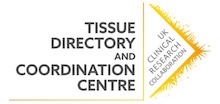Transparency Principles
The UKCRC Tissue Directory and Coordination Centre has launched a set of Transparency Principles. The Principles outline how transparency can be sustained throughout the research life cycle, ensuring biobanks and donors know who is using their samples and the purpose of the research.
Why are the Transparency Principles needed?
The Transparency Principles are a first step in describing basic levels of transparency required in biomedical research. Researchers should know where tissue samples have come from. Research tissue banks and donors should know which organisations are using their samples, and the research they are supporting.
Working transparently ensures biobanks can be cited in publications, an important step in evidencing impact and increasing visibility. Transparency also enables biobanks to communicate more meaningfully with their donors.
There is some concern in the biobanking community about maintaining transparency if third parties are involved in sample release. These access organisations work between the biobank and the researcher, sometimes removing personal contact. The access organisations operate with different transparency policies, which can cause challenges in how patients and biobanks are informed about the use of samples.
The Transparency Principles enable access organisations that work in transparent ways to be acknowledged, offering assurance to biobanks interested in working with these partners.
What are access organisations?
Access organisations provide a service or a platform which enables researchers to access samples from a range of biobanks. Specific public and private organisations help researchers to find, access and use samples in their research.
For biobanks, using an access organisation can increase connectivity to prospective sample users, in both academia and industry. This can contribute to greater sample release rates and maintaining sustainable cost recovery models.
A Biobank Perspective
The Wales Cancer Bank (WCB) registered to use the Scientist.com platform earlier this year. WCB, hosted by Cardiff University, supplies tissue and blood samples to enable high quality research. They are keen to supply samples to biotechnology and pharmaceutical companies but previously these requests have only come via personal contacts. To capitalise on this opportunity, WCB started using the Scientist.com platform in July 2019. Twenty sample requests have been received so far, several of which they have chosen to pursue. By using the Scientist.com platform both the researcher and the biobank know who they are working with, which was crucial to WCB.
Which access organisations have signed up?
Scientist.com
Scientist.com is a software solution that enables academic biobanks to connect directly with prospective industry researchers. The online platform ensures registered biobanks maintain full control and oversight of their samples, allowing them to decide which samples are made available, how they are processed and which researchers to work with. Scientist.com also ensures full transparency for the researcher ensuring they are able to identify with which biobanks they are engaging and accessing samples from. With a pre-negotiated industry-accepted legal agreement that proactively addresses the requirements of your Material Transfer Agreement & Confidentiality requirements, and an award-winning, cost neutral compliance platform, Scientist.com meets UKCRC TDCC’s Transparency Principles.
Tissue Solutions
The highly experienced team of scientists at Tissue Solutions work directly with both the biobanks and researchers in industry and academia, delivering fully compliant tissue samples for research use. By discussing the researchers’ needs and completing the relevant governance requirements, they enable faster, easier sample access. Tissue Solutions manage the whole process from Business Development to Logistics saving the Biobank team precious time, and allowing them to focus on sample collections. Their processes map to the Transparency Principles, with their researchers and tissue resources knowing who they are working with and the intended use of the samples/data.
Please contact the UKCRC Tissue Directory and Coordination Centre to discuss any questions relating to the Principles, we'd be pleased to hear from you.
If you're an access organisation, you can also contact us to sign up to the Principles!



